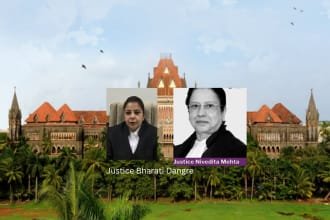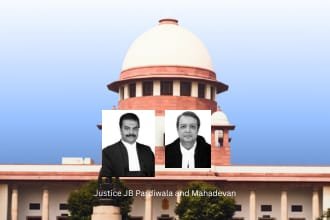In a significant judgment underscoring the evolving jurisprudence on child custody, the Bombay High Court at Goa has allowed a 15-year-old boy to remain in his father’s custody, prioritizing the adolescent’s autonomy and emotional well-being over a previously agreed consent order. The ruling, delivered on April 9, 2025, by a Division Bench of Justices Bharati Dangre and Nivedita Mehta, highlights the increasing recognition of mature minors’ voices in parental disputes.
Case Background: Parental Custody Battle Across Borders
The case stems from a habeas corpus petition filed by the mother, an Indian citizen residing in Canada, who sought to retrieve her minor son from his father’s custody in Goa. The couple had divorced by mutual consent in 2019, with a Goa court awarding primary custody of the child to the mother and granting the father limited visitation rights — up to 56 days annually.
In March 2025, during one such visitation period, the father allegedly retained the boy in India without the mother’s permission. The mother accused the father of breaching custody terms, abducting the child, manipulating documents to secure a new passport, and disrupting the child’s stable academic life in Ontario. According to her, the father’s actions not only violated legal agreements but also posed a threat to the child’s emotional and educational development.
Court’s Observations: Emphasizing Child’s Voice and Welfare
After personally interacting with the adolescent, the Court found his views to be firm, coherent, and emotionally resolute. Despite being legally a minor, the Court recognized that the boy was nearing adulthood and capable of expressing his own preferences.
“Though [the boy] is below 18 and therefore in a technical sense a child, he is away from maturity by two years… he has made a decision for himself… he is not at the age to feel bound by the decision taken for him by others, including the Court itself,” the Court observed.
The Bench was particularly moved by the adolescent’s strong aversion to returning to Canada and his clear preference to stay with his father. The judges emphasized that compelling the child to return to Canada against his will would risk serious psychological and emotional consequences.
“He is full of rage and we do not intend to put him in a situation which would cause him any physical, emotional or psychological harm… it would not be definitely in his interest,” the Court added.
Legal Standpoint: Balancing Custody Rights and Child’s Autonomy
While the Court acknowledged the mother’s legal custody rights, it refused to grant her plea to forcibly retrieve the child. Instead, the Court issued a nuanced order that sought to balance parental rights with the adolescent’s autonomy.
The mother was directed to facilitate the child’s online education through the Ontario Virtual School, where he had already been enrolled by the father. Simultaneously, the father was instructed to ensure that the child maintains regular contact with his mother to foster a healthy parent-child relationship.
The Court further added:
“We expect the petitioner [mother] to respect his decision… The welfare of a child, particularly an adolescent, must include his right to make his own choice.”
Significance of the Judgment
This ruling marks a progressive shift in Indian custody law, aligning with global trends that emphasize the agency of older minors in family law disputes. Traditionally, Indian courts have prioritized the “welfare of the child” standard, often leading to decisions that override children’s preferences in favor of legal custodians. However, the Bombay High Court’s approach sets a precedent in recognizing that adolescents nearing adulthood should have a meaningful say in decisions that deeply affect their lives.
Moreover, the Court’s refusal to treat the case purely as a legal custody violation—and instead treating the adolescent as a rights-bearing individual—demonstrates a shift from a parent-centric to a child-centric view in custody jurisprudence.
Implications for Future Custody Disputes
This ruling has far-reaching implications for custody disputes, especially in cases involving international parental disagreements. Courts may increasingly consider:
- The age and maturity level of the child;
- The child’s expressed preferences;
- The psychological impact of forced relocations;
- The feasibility of alternative schooling arrangements (e.g., online education);
- The importance of continued parental contact in joint custody arrangements.
This judgment could influence how Indian courts handle similar international custody disputes where one parent resides abroad and the child resists returning. It may also be cited in future habeas corpus petitions where one parent seeks the enforcement of prior custody orders against the child’s wishes.
Counsels and Representation
Senior Advocate Arundhati Katju and advocate Caroline Collasso represented the petitioner-mother. The father was represented by Senior Advocate AA Agni, along with advocates J Shaikh and Harihar. The State of Goa was represented by Additional Public Prosecutor Pravin Faldessai.
Conclusion: Towards a More Compassionate Custody Law
The Bombay High Court’s decision reiterates the judiciary’s commitment to placing the child’s best interest at the core of custody disputes. By acknowledging the boy’s autonomy, the Court delivered a compassionate verdict that respects the dignity and evolving capacity of adolescent children.
In family law, where the stakes are deeply personal and emotional, this judgment is a beacon of a child-centric approach — one that balances legal rights with human realities.



